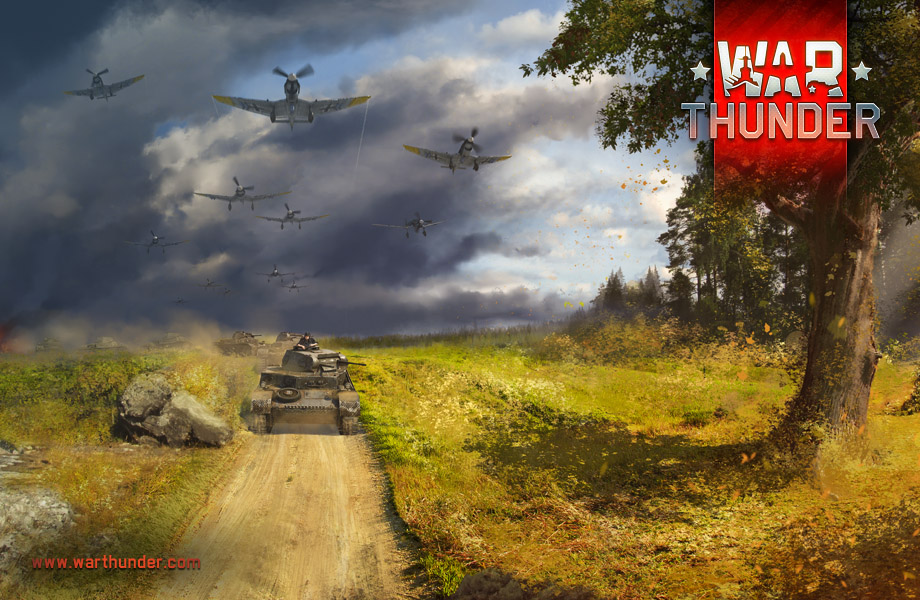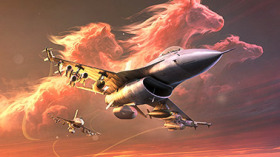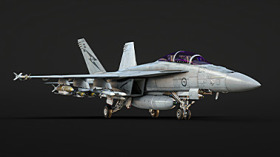
- For PC
- For MAC
- For Linux
- OS: Windows 10 (64 bit)
- Processor: Dual-Core 2.2 GHz
- Memory: 4GB
- Video Card: DirectX 11 level video card: AMD Radeon 77XX / NVIDIA GeForce GTX 660. The minimum supported resolution for the game is 720p.
- Network: Broadband Internet connection
- Hard Drive: 23.1 GB (Minimal client)
- OS: Windows 10/11 (64 bit)
- Processor: Intel Core i5 or Ryzen 5 3600 and better
- Memory: 16 GB and more
- Video Card: DirectX 11 level video card or higher and drivers: Nvidia GeForce 1060 and higher, Radeon RX 570 and higher
- Network: Broadband Internet connection
- Hard Drive: 75.9 GB (Full client)
- OS: Mac OS Big Sur 11.0 or newer
- Processor: Core i5, minimum 2.2GHz (Intel Xeon is not supported)
- Memory: 6 GB
- Video Card: Intel Iris Pro 5200 (Mac), or analog from AMD/Nvidia for Mac. Minimum supported resolution for the game is 720p with Metal support.
- Network: Broadband Internet connection
- Hard Drive: 22.1 GB (Minimal client)
- OS: Mac OS Big Sur 11.0 or newer
- Processor: Core i7 (Intel Xeon is not supported)
- Memory: 8 GB
- Video Card: Radeon Vega II or higher with Metal support.
- Network: Broadband Internet connection
- Hard Drive: 62.2 GB (Full client)
- OS: Most modern 64bit Linux distributions
- Processor: Dual-Core 2.4 GHz
- Memory: 4 GB
- Video Card: NVIDIA 660 with latest proprietary drivers (not older than 6 months) / similar AMD with latest proprietary drivers (not older than 6 months; the minimum supported resolution for the game is 720p) with Vulkan support.
- Network: Broadband Internet connection
- Hard Drive: 22.1 GB (Minimal client)
- OS: Ubuntu 20.04 64bit
- Processor: Intel Core i7
- Memory: 16 GB
- Video Card: NVIDIA 1060 with latest proprietary drivers (not older than 6 months) / similar AMD (Radeon RX 570) with latest proprietary drivers (not older than 6 months) with Vulkan support.
- Network: Broadband Internet connection
- Hard Drive: 62.2 GB (Full client)
Whilst on paper, the 11th of November 1918 brought peace to Europe by formally declaring an end to ‘The Great War’, the greatest conflict in the history of mankind was yet to come, with aggression still smouldering over the horizon.
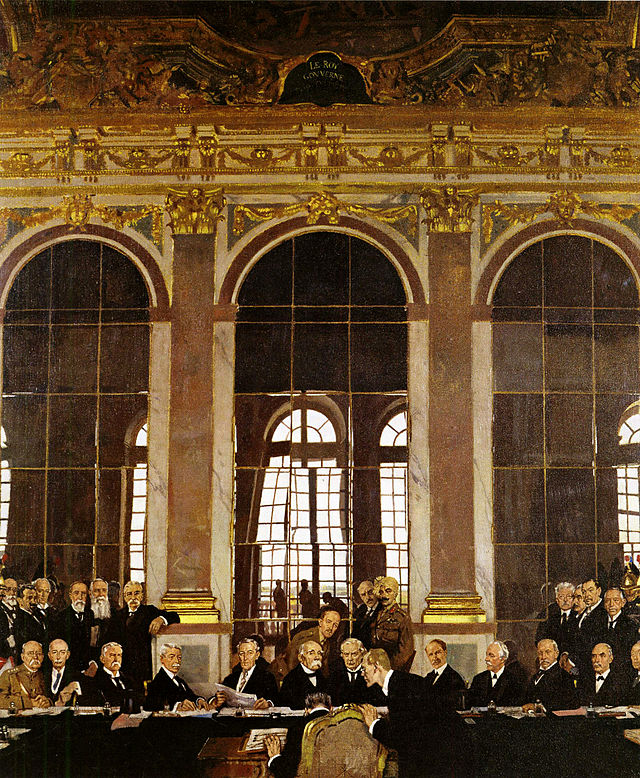 |
| The 'Treaty of Versailles' is signed, June 28th, 1919 |
The former Central Powers collapsed, with the German Emperor yielding to two revolutions proclaiming a democratic Germany and the Austro-Hungarian and Ottoman Empires being dissolved. The former Tsarist Russia finalized it’s transformation into the Soviet Union and new nations emerged from the political ruins of old Europe, with countless kilometers of territory changing its owner. Europe looked different now, and while many people were happy that the war was finally over, revanchism grew in many others, laying the foundations for the political instability over the following years.
The young democracy in Germany was shaken by the violent misbelief of the so-called “Stab-in-the-back” myth, claiming civilians - especially republicans - stabbed the undefeated German army in the back by accepting a peace serving only their own cause. Italy saw the birth of modern Fascism, dreaming about a Roman Empire of the old days and feeling betrayed by their former allies Great Britain and France for the territorial claims they laid on their defeated neighbor. The French Republic itself, after having endured most of the fighting of the war on its own territory, received back the old territories of Alsace-Lorraine, but was unable to press any permanent claims further up the river Rhine.
 |
|
In the so-called 'Anschluss' the German Reich annexed the Republic of Austria, 1938. |
The ‘Treaty of Versailles’, signed on the 28th of June, 1919, between the victorious powers and Germany was created to guarantee a lasting peace in Europe. Many officials of the victors regarded the treaty as incapable of doing so, and upon inspecting the document the French Marshal Foch said in a remarkably accurate quote: “This is not peace. It is an armistice for 20 years.”
In Germany, the treaty was fuel to the flames of revanchism and eventually in 1933, the first democratic Germany fell into the hands of the National Socialists and Adolf Hitler. Disregarding the “Slave Treaty” of Versailles, Hitler ordered the rearmament of Germany by creating the Wehrmacht and annexed Austria first, then the Czechoslovakian Sudetenland and eventually the entirety of Czechia.
The Empire of Great Britain, which was brought to the zenith of its power by the end of the ‘Great War’, followed a strict policy of ‘Appeasement’, trying to avoid another war at all costs. Hitler, now under the belief that the western powers were too weak to offer any opposition, had soon after laid his eyes on Poland, demanding the annexation of the Free City of Danzig and other political concessions. And although France and Great Britain guaranteed the integrity of the Polish borders, Hitler demanded that a Polish representative with power should finally settle the Danzig question, calculating the reaction of the Polish government. As expected, this move was met with fierce resistance and the ultimatum lapsed.
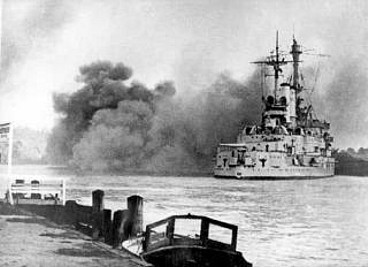 |
|
The KMS Schleswig-Holstein, firing the first shots of the Second World War near Gdańsk (Danzig) |
On the 31st of August, 1939, German agents received a phone call, saying ‘Großmutter ist gestorben’ - ‘Grandmother has died’. Disguised as Polish irregulars, the Germans attacked the Gleiwitz radio station in an operation called ‘Unternehmen Tannenberg’, a false-flag operation to blame the start of hostilities on Poland. Soon after, the German radio brought news to almost every German household, claiming countless border violations by armed Polish personnel, albeit the desperate German attempts for a peaceful solution. “This time we will not do the error of 1914. Everything now depends on blaming the other side”, recalls Albert Speer the words of Hitler, who proclaimed on the 1st of September, 1939, as a conclusion to his pre-war propaganda: “Since 05:45 we are shooting back.”
On the 3rd of September 1939, France and Great Britain honoured their alliance with Poland and declared war on Germany, much to the disbelief of Hitler, who again counted on their unwillingness to wage war. For the following, almost six years, Europe again would be plunged into the abyss of another ‘Great War’, the greatest mankind ever had to endure.
The War Thunder Team
